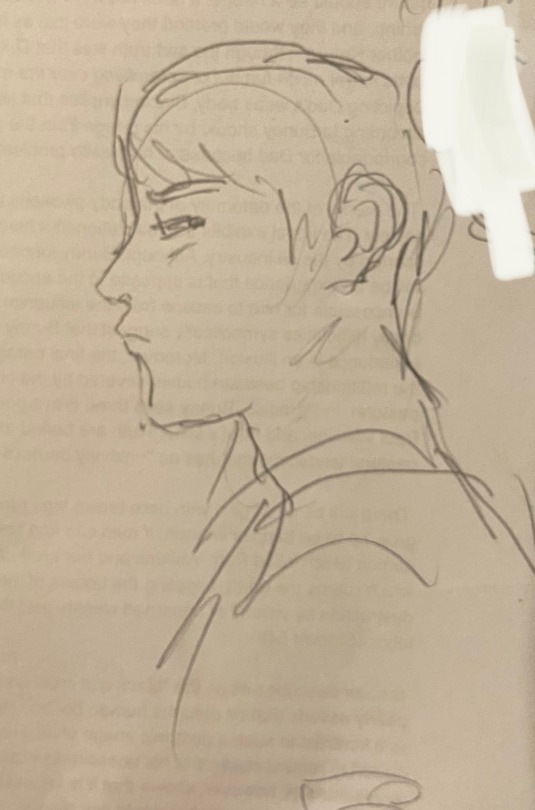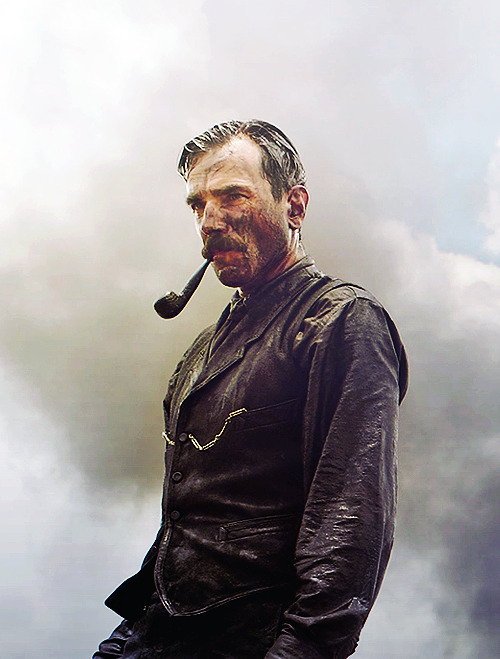#oil upton sinclair
Explore tagged Tumblr posts
Text

Everyday I think about this passage: Is Book Eli canonically a passenger princess…also goggles?? heavily veiled??

Is this a canonical Eli Watkins fit
18 notes
·
View notes
Text
Yesterday I made this post (https://www.tumblr.com/kaibasupremacy/758723210571317248/all-the-eli-bits-in-oil-by-upton-sinclair), and today I finally obtained the 1929 Oil! play, so I am posting all the Eli bits from the play too (the other post is all the Eli bits from the novel)
It has four acts.
These are from the first act:










1/2
(The rest is in the reblogs)
15 notes
·
View notes
Text



He is very dear to me…
nothing more embarrassing than holding a blonde man dear in your thoughts. you were supposed to be the enemy.
15K notes
·
View notes
Text




There Will Be Blood [2007] | Directed by P.T. Anderson
#there will be blood#paul thomas anderson#daniel day lewis#paul dano#kevin j. o'connor#ciaran hinds#russell harvard#upton sinclair#johnny greenwood#epic#cinema#southern california oil boom#oil!#2000s
7 notes
·
View notes
Text
James Arnold Ross Jr., nicknamed “Bunny,” is the son of a self-made oil millionaire. As he comes of age, Bunny’s sympathies for oilfield workers and socialists often clash with his father and his father’s business partners, forcing him to confront the ethical implications of his family’s wealth and power.
As Bunny witnesses the devastating consequences of his father’s unethical business practices, including accidents and a worker strike, he finds himself torn between loyalty to his family and his burgeoning friendship with an oilfield worker, Paul Watkins. Paul, influenced by his experiences in post-World War I Siberia, becomes a fervent advocate for labor rights and embraces communism. The novel explores the complex dynamics of family, loyalty, and the pursuit of justice in a society driven by oil and power.
Sinclair’s narrative satirically critiques the flaws and weaknesses of all the characters, shedding light on the human condition in the face of greed and inequality. The book offers a profound examination of societal issues, delving into themes of corruption, greed, and the struggle for workers’ rights.
Oil! inspired the 2007 film There Will Be Blood. The novel’s enduring relevance lies in its exploration of the interplay between wealth and morality and its scathing commentary on the oil industry. Read free
#books#upton sinclair#oil!#free ebooks#free books#public domain#books and reading#books and writing#books and authors#books and literature#books and libraries#20th century literature#20th century#standard ebooks
12 notes
·
View notes
Text





book thoughts
#twbb#eli sunday#eli watkins#book fanart#upton sinclair#Oil!#not very accurate irt hairstyles#but im a slave to the bishie look#there will be blood
10 notes
·
View notes
Text
i had to watch "there will be blood" for my philosophy class and let me tell you i was shook to my core in the final act
#there will be blood#shit was crazy#it made me want to read the book though#since it was based on oil! by upton sinclair
4 notes
·
View notes
Text
On March 27, 2008, There Will Be Blood debuted in Czechia.


#there will be blood#paul thomas anderson#daniel day lewis#upton sinclair#oil!#historical drama#epic film#period drama#drama movies#drama film#social realist film#movie art#art#drawing#movie history#pop art#modern art#pop surrealism#cult movies#portrait#cult film
2 notes
·
View notes
Text
"It was a world in which some people worked all the time, and other played all the time. To work all the time was a bore, and no one would do it unless he had to; but to play all the time was equally a bore, and the people who did it never had anything to talk about that Bunny wanted to listen to. They talked about their play, just as solemnly as if it had been work: tennis tournaments, golf tournaments, polo matches--all sorts of complicated ways of hitting a little ball about a field! Now, it was all right, when you needed exercise and recreation, to go out and hit a little ball; but to make a life-work of it, to give all your time and thought to it, to practice it religiously, read and write books about it, discuss it for hours on end--Bunny looked at these fully grown men and women, with their elaborate outfits of 'sports clothes,' and it seemed to him they must be exercising a kind of hypnosis upon themselves, to make themselves believe that they were really enjoying their lives."
Upton Sinclair, Oil!
2 notes
·
View notes
Photo
Paul Dano as Eli Sunday, a fascinatingly evil character.



PAUL DANO There Will Be Blood (2007) dir. Paul Thomas Anderson
#movies#classic movies#movies based on books#There Will Be Blood#Paul Dano#Paul Thomas Anderson#Oil!#Upton Sinclair
3K notes
·
View notes
Text

Fun Eli facts: He has seen one (1) movie
19 notes
·
View notes
Text
All the Eli bits in Oil! by Upton Sinclair
So lately I’ve been obsessing over There Will Be Blood (2007) and the novel it’s loosely based on. I think Oil! is a great book and I encourage you to read it in full, but I made a pdf with all the bits in which Eli Watkins appears or is mentioned if you want to incorporate book characterization to your depictions of Eli Sunday or if you are just curious.
He is my favorite character in the novel and I wish more ppl knew of him.
If I missed any line please tell me
14 notes
·
View notes
Text


To
THE EDITOR MODERN REVIEW
You have in the December (1929) issue of your esteemed magazine, written a note under the caption “Long Live Revolution” and have pointed out the meaninglessness of this phrase. It would be impertinent on our part to try to refute or contradict the statement of such an old, experienced and renowned journalist as your noble self, for whom every enlightened Indian has profound admiration. Still we feel it our duty to explain what we desire to convey by the said phrase, as in a way it fell to our lot to give these “cries” a publicity in this country at this stage.
We are not the originators of this cry. The same cry had been used in Russain revolutionary movement. Upton Sinclair, the well known socialist writer, has, in his recent novels Boston and Oil, used this cry through some of the anarchist revolutionary characters. The phrase never means that the sanguinary strife should ever continue, or that nothing should ever be stationary even for a short while. By long usage this cry achieves a significicance which may not be quite justifiable from the grammatical or the etymological point of view, but nevertheless we cannot abstract from that the association of ideas connected with that. All such shouts denote a general sense which is partly acquired and partly inherent in them. For instance, when we shout “Long Live Jatin Das”, we cannot and do not mean thereby that Das should Physically be alive. What we mean by that shout is that the noble ideal of his life, the indomitable spirit which enabled that great martyr to bear such untold suffering and to make the extreme sacrifice for that we may show the same unfailing courage in persuance of our ideal. It is that spirit that we allude to.
Simiarly, one should not interpret the word “Revolution” in its literal sense. Various meanings and significances are attributed to this word, according to the interests of those who use or misuse it. For the established agencies of exploitation it conjures up a feeling of blood stained horror. To the revolutionaries it is a sacred phrase. We tried to clear in our statement before the Session Judge, Delhi, in our trial in the Assembly Bomb Case, what we mean by the word “Revolution”
We stated therein that Revolution did not necessarily involve sanguinary strife. It was not a cult of bomb and pistol. They may sometimes be mere means for its achievement. No doubt they play a prominent part in some movements, but they do not — for that very reason -become one and the same thing. A rebellion is not a revolution. It may ultimately lead to that end.
The sense in which the word Revolution is used in that phrase, is the spirit, the longing for a change for the better. The people generally get accustomed to the established order of things and begin to tremble at the very idea of a change. It is this lethargical spirit that needs be replaced by the revolutionary spirit. Otherwise degeneration gains the upper hand and the whole humanity is led stray by the reactionary forces. Such a state of affiars leads to stagnation and paralysis in human progress. The spirit of Revolution should always permeate the soul of humanity, so that the reactionary forces may not accumulate (strength) to check its eternal onward march. Old order should change, always and ever, yielding place to new, so that one “good” order may not corrupt the world. It is in this sense that we raise the shout “Long Live Revolution”
Yours sincerely
(Sd/-.)
Bhagat Singh
B. K. Dutt
#bhagat singh#long live the revolution#revolution#desiblr#desi#india#indian#indian freedom#indian independence#anti colonialism#community building#practical anarchy#practical anarchism#anarchist society#practical#anarchism#daily posts#communism#anti capitalist#anti capitalism#late stage capitalism#organization#grassroots#grass roots#anarchists#libraries#leftism#social issues#economy#economics
5 notes
·
View notes
Text
A movie loosely based on Upton Sinclair's novel Oil!







PAUL DANO as ELI SUNDAY THERE WILL BE BLOOD (2007) dir. Paul Thomas Anderson
#movies#classic movies#there will be blood#paul thomas anderson#paul dano#eli sunday#movie adaptation#books#upton sinclair#oil!
278 notes
·
View notes
Text

Movie poster.
There Will Be Blood is a 2007 American epic period drama film written and directed by Paul Thomas Anderson, loosely based on the 1927 novel Oil! by Upton Sinclair.[4] It stars Daniel Day-Lewis as Daniel Plainview, a silver miner turned oilman on a ruthless quest for wealth during Southern California's oil boom of the late 19th and early 20th centuries. Paul Dano, Kevin J. O'Connor, Ciarán Hinds, and Dillon Freasier co-star.
The film was produced by Ghoulardi Film Company and distributed by Paramount Vantage and Miramax Films. At the 2008 Berlin International Film Festival, it won the Silver Bear Award for Best Director and a Special Artistic Contribution Award for Jonny Greenwood's score. It grossed $76.2 million worldwide on a $25 million budget.
There Will Be Blood received acclaim for its cinematography, direction, screenplay, score, and the performances of Day-Lewis and Dano. Day-Lewis won the Academy Award, BAFTA, Golden Globe, Screen Actors Guild, NYFCC and IFTA Best Leading Actor awards for the role. It has been widely regarded by critics as one of the greatest films of the 21st century,[5][6] and it appeared on many critics' "top ten" lists for 2007, including the American Film Institute,[7] the National Society of Film Critics, the National Board of Review, and the Los Angeles Film Critics Association. At the 80th Academy Awards, the film was nominated for eight Oscars (tying with another Miramax/Paramount Vantage co-production No Country for Old Men). The nominations included Best Picture, Best Director and Best Adapted Screenplay for Anderson. Along with Day-Lewis' Oscar for Best Actor, Robert Elswit won the award for Best Cinematography. Source: Wikipedia
#daniel day lewis#there will be blood#film#movies#movie stars#acting#actors#pipe men#vintagemen#pipesmoking#pipemen#vintage men#pipes#smoking pipe
10 notes
·
View notes
Text
I missed it this year because my head has been i don't know where but, here it is, a whole ass month later:
BOOKS THAT ENTERED THE PUBLIC DOMAIN IN 2023!!! yay!
In alphabetical order...
Amerika by Franz Kafka (also known, in English, as The Man Who Disappeared, The Missing Person and as Lost in America)
Aspects of the Novel by E.M. Forester
Being and Time (in German, Sein und Zeit) by Martin Heidegger’s
Cogwea, The Half-Blood by Mourning Dove
Death Comes for the Archbishop by Willa Cather
Elmer Gantry by Sinclair Lewis
Flight Without End (in German, Die Flucht ohne Ende) by Joseph Roth
Gentlemen Prefer Blondes / But Gentlemen Marry Brunettes by Anita Loos
God’s Trombones: Seven Negro Sermons in Verse by James Wheldon
Goodnight Moon by Margaret Wise Brown
Men Without Women by Ernest Hemingway
Mosquitoes by William Faulkner
Naruto Hitcho by Eiji Yoshikawa
Now We Are Six by A.A. Milne
Oil! by Upton Sinclair
Pomes Penyeach by James Joyce
Steppenwolf by Herman Hess
The Big Four by Agatha Christie
The Bridge of San Luis Rey by Thornton Wilder
The Case-Book of Sherlock Holmes by Arthur Conan Doyle
The Colour Out of Space by H.P. Lovecraft
The Daughters of Time by Josephine Tey
The House on the Cliff (The Hardy Boys, #2) by Franklin W. Dixon
The Runaway Bunny by Margaret Wise Brown
The Secret of the Old Mill (The Hardy Boys, #3) by Franklin W. Dixon
The Tower Treasure (The Hardy Boys, #1) by Franklin W. Dixon
The Treasure of the Sierra Madre by B. Traven
The Tuesday Night Club by Agatha Christie
Time Regained by Marcel Proust
To the Lighthouse by Virginia Woolf
Twilight Sleep by Edith Wharton
Unnatural Death by Dorothy L. Sayers
#public domain 2023#books#reading#readers#bookish stuff#unsure if this is the full list but these are the ones i found
5 notes
·
View notes